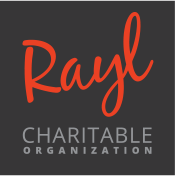Transport Topics, June 24, 2019
When J. Rayl Transport’s CEO, Jeremy Rayl, died suddenly in 2017 at the age of 39, the Akron, Ohio-based trucking company lost “more than just a boss,” in the words of chief operating officer and close friend Ryan Richards.
Nothing can prepare a company for such an unexpected loss, but in this case, no one wondered what would happen next. Because Rayl had put a plan and the people in place to carry on his vision, operations continued without missing a beat as the team grieved his passing.
“The biggest challenge wasn’t really business; it was waking up and realizing that he was gone,” said Richards, who had known Rayl for 30 years and worked with him for the last nine. Rayl took over the family-owned freight business in 2008 from his father, Tim, who co-founded the company in 1987 with a fleet of five trucks. Under his leadership, the company grew from about 100 employees to more than 400, with 350 tractors and 800 trailers — achieving a compound annual growth rate of more than 13% over the past decade.
“Jeremy was a visionary. He was always planning and thinking into the future,” Richards said. “He cemented the vision that his father started by defining a plan that extended all the way through 2020. It laid out details in terms of people, equipment and target markets, with trigger points based on moves our customers make. So when we hit a milestone, we know the next move we’re going to make.”
Employees and customers knew the plan well because J. Rayl’s management team regularly discussed it with them. After Rayl died, Tim stepped back into the business and resumed the role of CEO to oversee the plan’s execution. Having a familiar plan and people in place helped employees and customers adjust, preventing the unexpected from becoming a setback.
Within a few days after Jeremy’s passing, Richards personally contacted all of J. Rayl’s customers to deliver the news and reassure them that business would continue as usual.
“Yes, this is a sad day,” he told them. “However, you guys know the plan. His father is re-engaged in the business, he’s supporting us, and with his help and his blessing, the same team Jeremy put together is going to execute the plan that you have already seen.”
Carrying on the Legacy
People were always key to Rayl’s plan, because he relied on employees to implement his long-term vision for taking care of customers.
“In transportation, something could always go wrong, whether it’s weather, breakdowns or traffic,” Richards said. “When you boil it down, our employees are our differentiator because it’s how you respond to those challenges and how quickly you provide solutions that proves to customers they’re more than just a number.”
Over the last several years, Rayl had been building a management team to help execute his plan. The current team came together two years ago, filling J. Rayl’s bench strength with a group of talented leaders who shared his vision for growth.
“When you’re interviewing people to be on a management team, the résumés obviously look good,” Richards said. “But whether you’re qualified for the job or not, it’s more than that. You need to understand what we’re all about and how we want to go about it. There were plenty of people we talked to that could have done the job but wouldn’t have fit our culture.”
Choosing wisely was key to reinforcing the company’s family atmosphere. As J. Rayl continued to grow, this culture became self-perpetuating as it attracted people who saw opportunities to grow and develop with the company.
Reinvesting in Growth
The key to J. Rayl’s growth through the generations, Richards said, has been Tim and Jeremy’s unrelenting passion to continue investing in the company — in equipment, facilities and technology, and in its people.
In terms of facilities, J. Rayl has grown from one to four staffed terminals, located in Ohio, Indiana, Texas and Virginia, and the growth plan details specific factors that might trigger further expansion in the future.
On the equipment side, J. Rayl keeps its fleet fairly new; for example, all of its trailers are less than 10 years old.
To keep trucks running safely and efficiently, the company also invests in new technology, sparing no expense on safety features such as automatic braking and anti-rollover systems or tracking systems. The company invested in electronic logging devices to track drive time six years ago, long before the government mandated them in December 2017.
In 2014, J. Rayl converted 134 of its trucks to run on compressed natural gas and built the first public CNG station in Akron. The equipment costs more upfront, and fuel costs slightly less than diesel, but Richards says it wasn’t an economic move as much as an environmental one.
“We were able to reduce our carbon footprint by over 12 million pounds last year, which decreased the entire fleet’s carbon footprint by 14%,” he said. “It’s a differentiator for customers who want a lower environmental impact.”
Reinvesting in people is perhaps the most critical component to the company’s growth. By providing continuing education and training opportunities, J. Rayl develops its future leaders. The company rolled out a management training program several years ago and last year put 40 employees through Six Sigma training to learn techniques for continuous improvement.
To develop its driver base, the company also expanded its finishing school, which gives recent CDL graduates additional training before hitting the road.
“By continuing to give opportunities for people to better themselves, that helps with our growth and gives us the ability to promote from within whenever possible,” Richards said.
Continuing the Trajectory
In addition to transporting freight, J. Rayl offers custom solutions, including consulting and warehousing, even managing some customers’ logistics entirely. Tim Rayl started the company to serve Akron’s tire industry, and since then, the company has grown into one of the country’s largest tire transporters, while diversifying into markets such as food and beverage, home products and raw materials for manufacturing.
This diversification has buffered the company against economic swings and seasonal cycles. But most important, through all the growth and expansion, J. Rayl has remained committed to its core.
“We never expanded outside of our wheelhouse to chase an industry on the peripheral of what we do,” Richards said. “We’ve continued to perfect our core business practices, never losing sight of what got us in the door with our customers. You have to stay true to your niche because, as you deviate from that, you run the risk of alienating your customers and hurting your growth.”
Thanks to Jeremy Rayl’s strategic vision for growing the business his father built, J. Rayl’s growth trajectory will continue as his team keeps following the plan.
“He would have wanted us to take something terrible and make it into something better,” Richards said. “Everybody understood the vision, but losing him motivates everyone to make it happen.”
This article was originally published online by Huntington National Bank. Before J. Rayl Transport became a recognized name in trucking, Tim Rayl financed his first truck with Huntington. Since then, the company has worked closely with the bank to achieve the aggressive growth plans set by Rayl’s son, Jeremy, the former CEO.

